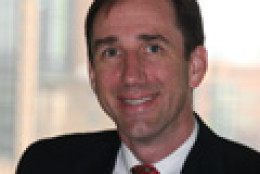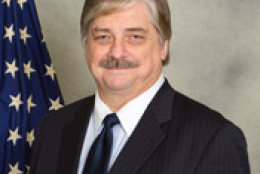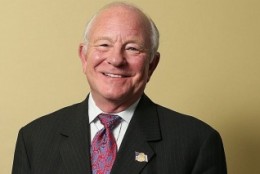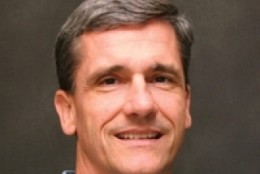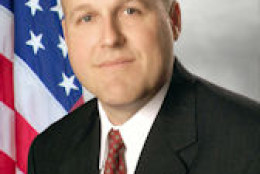Hubbard Radio Washington DC, LLC. All rights reserved. This website is not intended for users located within the European Economic Area.
Radio Interviews
-
Recruiting new talent at the National Cemetery Administration is getting faster now because the agency has focused on streamlining its hiring process. NCA is using data analytics to help it hire the right people quickly. 80 percent of NCA's recruitment gets done in about 60 days. Dissatisfaction with traditional outlets like USAJobs.gov means some agencies often look for other approaches to the hiring process. Tim McManus is vice president for education and outreach at the Partnership for Public Service. He tells In Depth guest host Jared Serbu that other agencies can learn from these best practices -- mainly by making better use of data.
July 16, 2015 -
It's been four and a half years since the White House proclaimed it wanted agencies to make a big move to cloud computing via the so-called "cloud first" policy. But the pace of cloud adoption has been far slower than what former federal CIO Vivek Kundra probably had in mind back in 2010. The American Council of Technology-Industry Advisory Council set out to find out why -- and then, in a new guidebook, explain how agencies can break down perceived barriers to cloud adoption. Mark Day is the co-chair of the ACT-IAC Cloud Computing Working Group and also the deputy assistant commissioner in GSA's integrated technology service. He tells In Depth guest host Jared Serbu what's in the new guidebook and how it will help agencies move to the cloud.
July 16, 2015 -
Agencies will likely go a relative spending spree between now and the end of the fiscal year. But some small companies could be missing out on potential contracts. Marci Love Thomas is a senior counsel in the government contracts practice at General Counsel, and a former senior attorney advisor for the Small Business Adminstration. She tells In Depth guest host Jared Serbu that there are two things that could impact companies in the small business 8(a) program, and also small businesses more generally.
July 16, 2015 -
Elevators, curb cuts, automatic doors — all things most of us have taken for granted in the last 25 years since the Americans with Disabilities Act was signed into law. For able-bodied people, it makes our days more convenient. But for those with disabilities, ADA provides crucial access to aspects of everyday life. Judy Heumann is the State Department's special advisor for international disability rights. She was on the front lines fighting for people with disabilities over 40 years ago, and now she's doing it at the global level. She joined Tom Temin on the Federal Drive with more on the anniversary celebrations.
July 16, 2015 -
Over the last two days, we've explored many of the trends in offices and buildings where you work. Now, we look inward to office interiors. Kevin Kampschroer is the chief sustainability officer at the General Services Administration, and director of the Office of High Performance Green Buildings. Environmental psychologist Judy Heerwagen is a program expert in that office. In the final part of our special report, "The Federal Office of the Future," they tell Federal News Radio's Lauren Larson more about the evolution of personal workspaces, and the planning required before choosing a new office.
July 16, 2015 -
Chairs — the final frontier of office place evolution. It's where we spend the majority of our work days, and they've come a long way since the simple, cheap models of the 1960s. Claire Ganley is a managing consultant at Humanscale. In the third and final part of our special report, "The Federal Office of the Future," she joined Tom Temin on the Federal Drive to review some of the current trends in ergonomics.
July 16, 2015 -
Claire Gainley of Humanscale talks with Federal News Radio's Tom Temin about how to best design chairs to fit the people who will use them.
July 16, 2015 -
In the future, federal offices could be more like patios - where furniture is adjustable and moveable for whatever task or project is at hand, say experts at the General Services Administration. In our special report, The Federal Office of the Future, we examine the research behind the decision to make office spaces more flexible.
July 16, 2015 -
The number of agency employees using two-factor authentication is 20 percent since the start of the 30-day cybersecurity sprint. Federal Chief Information Officer Tony Scott had some positive results to share at the halfway point. Patrick Flynn is the director of homeland and national security programs at Intel Security, and former assistant chief of the Office of Border Patrol at Customs and Border Protection. He tells In Depth with Francis Rose what we should be looking for as more agencies report their progress at the end of the cyber sprint.
July 15, 2015 -
The Army has known for a few years now its active duty end strength will have to get smaller. It's even announced the final number: 450,000. And sequestration — if it continues in fiscal 2016 — will make things worse, putting the Army on a path to an active duty force of 420,000. But the decisions on which bases those cuts will come from are now out, and many lawmakers are suddenly up in arms. Mark Cancian is a senior adviser for the International Security Program at the Center for Strategic and International Studies and former chief of the Force and Structure and Investment Division at the Office of Management and Budget. He tells In Depth guest host Jared Serbu the Army is taking the same approach to impending budget cuts as a private company might when its workforce gets too expensive.
July 15, 2015 -
The OPM cyber attack may turn out to have a silver lining. The attack may give agencies an opportunity — if they choose to take it — to redefine encryption. Chuck Archer is the executive chairman at Covata and former assistant director of the Federal Bureau of Investigation. He tells In Depth with Francis Rose that encryption isn't a people problem.
July 15, 2015 -
When it comes to federal buildings, efficiency is all the rage. The government has gone all in for the Leadership in Energy and Environmental Design (LEED) standards. Agencies can't even consider some construction projects unless they're LEED certified. In part two of our special report, "The Federal Office of the Future," Michael Blount, the vice president of Balfour-Beatty Construction, joined Tom Temin on the Federal Drive to elaborate on these changing standards.
July 15, 2015 -
The General Services Administration is one of the agencies leading the drive to improve energy efficiency in federal buildings. Last year, it commissioned a complete transformation of the Edith Green-Wendell Wyatt Building in Portland, Oregon. Originally built in 1974, it's now one of the most efficient federal buildings in the country. In part two of our special report, "The Federal Office of the Future," Chaun Benjamin, the Region 10 commissioner for GSA's Public Buildings Service, joined the Federal Drive with Tom Temin with a behind-the-scenes look at the renovations.
July 15, 2015 The Obama Administration still has more than a year to go, but it's never too early to start planning for a presidential transition. The broad topic of transfer of power is covered by the Constitution; but it doesn't cover all of the requirements of a modern, three trillion-dollar government. John Palguta is the vice president for policy at the Partnership for Public Service. He joined Tom Temin on the Federal Drive to explain how new administrations can deal with thousands of management details.
July 15, 2015

